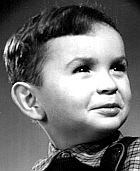The Inner Circle by T. C. Boyle
This book is one of the best I have read in the last years, so exciting like Middlesex (by Jeffrey Eugenides). T. C. Boyle, the author of more than ten bestsellers, is a writer of 'real' American stories, so the interest in his books can be limited outside the US. But this one is about the famous sex researcher, Dr. Alfred Kinsey, who wrote the two earth-breaking books near the beginning of the 50's about human sexuality. Those scientific publications were sold better as any other books from that era, and were the main vehicle to debunk Victorian morality and tear down sexual repression in America (I am not sure if using past tense is totally right here).
Prok (this is the name of Dr. Kinsey used by friends) is the real hero of the book, even if it is told by one of his assistants, Milk, and formally is about Milk's life, his common life with Iris, his wife. Clara, Prok's wife is also an important figure.
Prok is a sex- and science-maniac tyrant, there is no doubt on that, even if he is adored by a lot of or even all of his 'inner circle'. Clara and Iris are the most sympathico figures (and as usual, all the everyday duties of the families are on the shoulders of the wives, while the men are doing 'research' and all that stuff).
What confuses me is where exactly to find the right balance between the "human animal's" needs and the miracle of love and marriage. There are many situations in the book where the reader easily sees some extremes are out of question, but there are too many others as well where it is not clear at all if a possible refusal would come from our shyness, false reflexes or from our good taste? I think there is a big dilemma and a problem with finding the proper way to interiorize or suppress our 'human animal' needs, due to our morals or cultural believes.
There is an independent movie titled 'Kinsey' (2004) from Bill Condon, which tells the same story. Of course, it is hard to be basically different, but as usual, a book and a movie are not in the same worlds. I was amused, however, by the story of Clara, teaching the naive John Milk in both worlds. This is one of the rare occasions where the film was unbeatable - Prok (played by the marvelous Liam Neeson) standing totally perplexed on the first floor and shouting up to the own bedroom to the strange pair... Laura Linney as Clara is unforgettable.
ISBN 0670033448
http://www.imdb.com/title/tt0362269/

